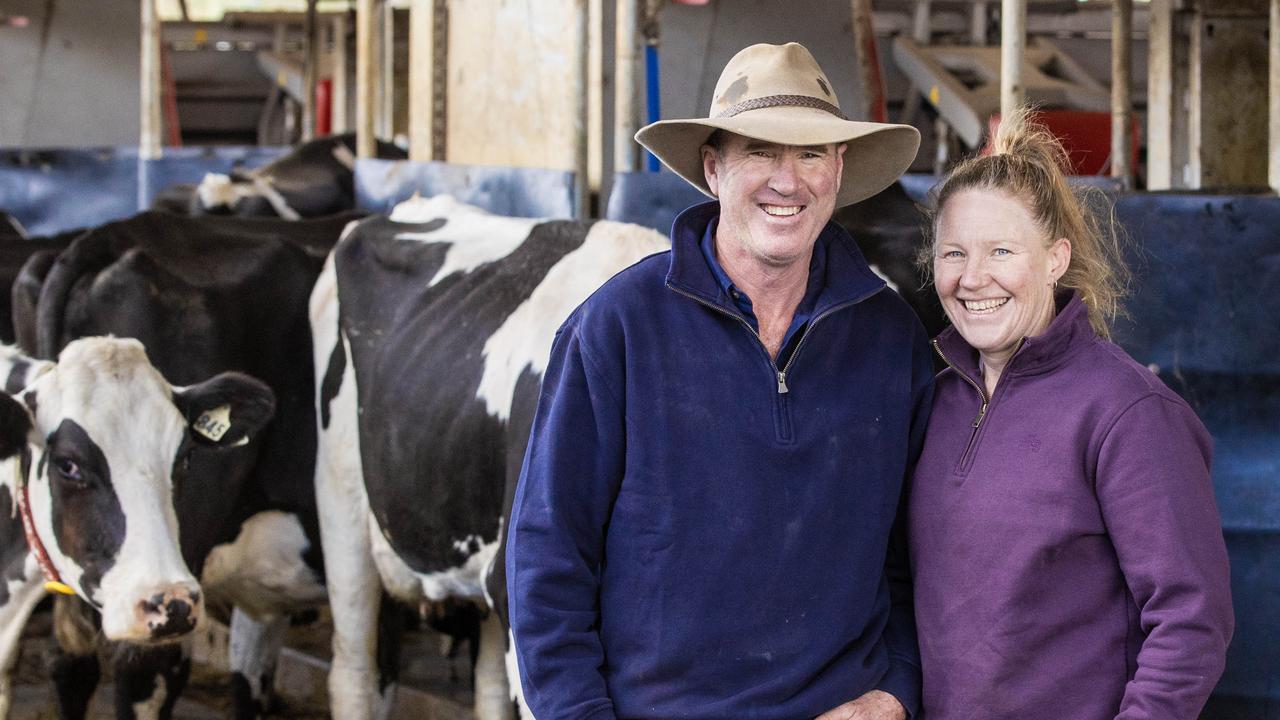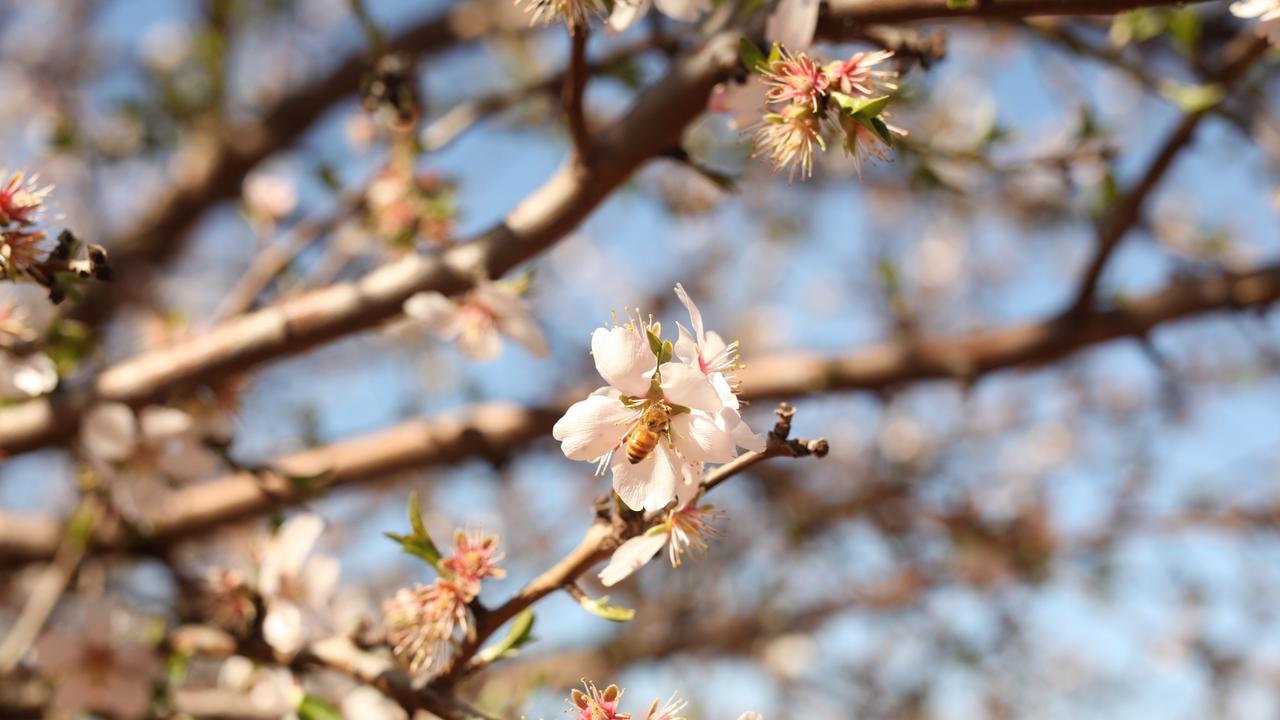Meet the young guns of some of Australia’s farming families
These eight young guns are part of established family businesses, but that hasn’t stopped them making waves with their own work.
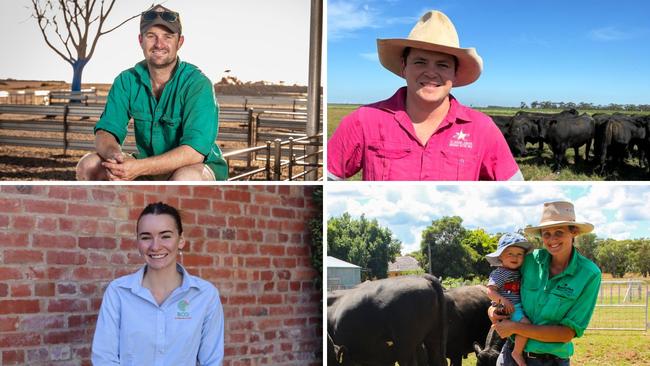
The next generation of these well-known farming families are already pushing the boundaries in their own endeavours, and with established operations going from strength-to-strength, will be the names to look out for in the agricultural world in coming years.
HAMISH THOMPSON, 33
Hamish Thompson lives by the “have-a-go” motto, and his approach to getting the best genetics out of his sheep at Moojepin Merinos is no different.
“To me, the attitude is the whole crux of breeding. Sometimes you use genetics that may or not work, but that’s the joy of it,” he said.
“Seeing the fruits of your labour, three, four or even 10 years down the track, tracing genetics back to a certain dam or sire line.”
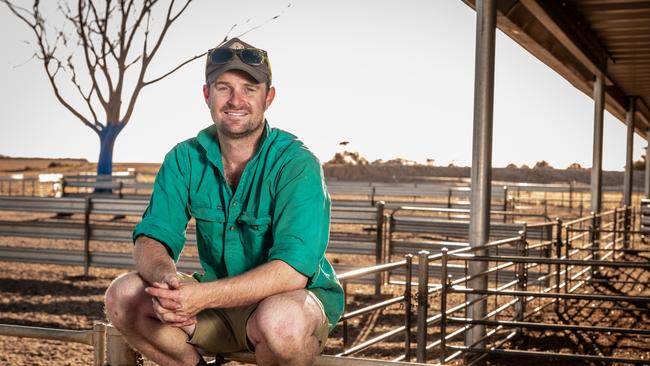
Managing 1500 breeding ewes and a 2000-strong commercial flock with the rest of the Thompson family near Katanning in the Great Southern Region of Western Australia, Hamish loves being told something is impossible, and proving people wrong.
“People said we couldn’t join ewe lambs, and this will be our 14th year doing it. Some years are more successful than others, but we are learning every year, using genetics to make it more of a success,” he said.
Pushing the boundaries in genetics and breeding underpins operations at Moojepin, with Hamish keen to be involved in industry-changing trials.
“We’ve just been accepted into (Meat and Livestock Australia’s) methane measurement trial, which is really exciting,” he said.
“I think there’s huge potential to be able to breed sheep that are low methane emitters, and there’s no doubt in my mind we can breed a line of sheep that release less greenhouse gases.”
GRACE HOSKING, 22
Growing up on a livestock and cropping farm just south of Quambatook in Victoria’s Mallee, Grace and her three younger sisters are the sixth generation of her family on the farm.
“We would always help out in peak periods outside of school, work and sport, and our spare time growing up was spent drafting sheep, fencing, sitting on headers and that kind of thing,” Grace said.
“I think that’s where my passion for agriculture started, doing that real grassroots stuff.”
Grace, the daughter of former Victorian Farmers Federation vice-president and Grain Growers chairman Brett Hosking and wife Jane, has now taken that passion to Birchip Cropping Group, where she leads the northwest node of the Victorian Drought Resilience and Innovation hub.
“It’s a really motivating environment to work in,” Grace said.
“Climate is the largest driver of productivity for Australian croppers, and climate change poses a serious threat to both food security and sustainability.”
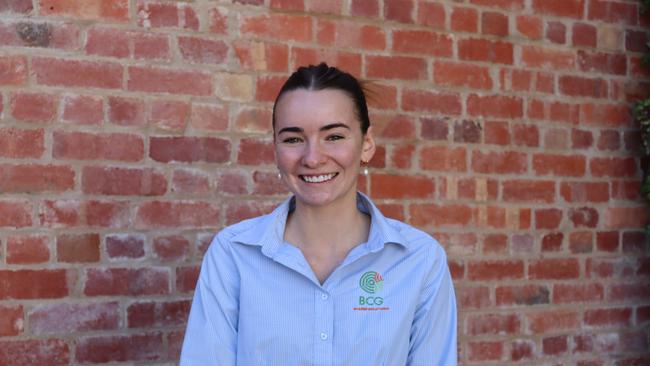
Grace knows farmers will need to adapt to more extreme weather conditions in the years to come, and is focused on bringing generations together to help do this.
“We see it as a really important aspect of our work. We’ve got an older generation who know the land better than anyone, and a younger generation who are really keen to see how technology can fit into the system,” she said.
JACK O’CONNOR, 31
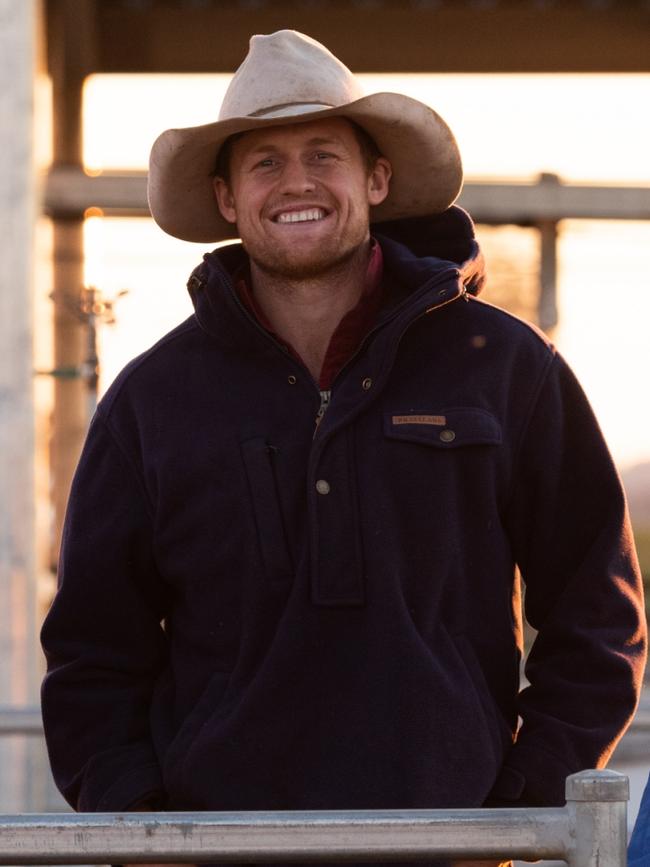
A fourth-generation farmer, Jack O’Connor is a senior station hand at Oxton Park in Harden, NSW, predominantly working in the livestock side of the prime lamb, wool and mixed cropping enterprise.
When asked about the best part of working at Oxton, Jack was emphatic in the joy of working with those around him.
“It’d be hard to go past the team,” Jack said.
“We’ve got seasoned veterans being the generation above, and young people coming through the ranks. I think everyone offers a really great perspective and you don’t get a heap of industries that have all sorts of age groups working together.
“Having grown up here, and born and bred around Harden, it has such a resilient and strong, tight-knit community.”
The different perspectives come from a wide range of backgrounds, and it’s what Jack thinks can help attract more young people to agriculture.
“The beauty of our industry is that it is so broad. There’s all these different arms that have started to shoot out of our industry, that might not have been widely known or even existed 20 or 30 years ago,” he said.
“It’s about making it known to people that there are so many different avenues into the industry, and providing good opportunities and enticing pathways for good people coming through.”
But in addition to offering these pathways, Will knows it is the strong culture, such as like the one developed at Oxton Park, that will keep people around.
“At the end of the day people take jobs on face value … but they stay for more deeper reasons,” Jack said.
NIGEL CORISH, 40
After sitting on the fence for a number of years, Condamine crop grower Nigel Corish bit the bullet and is now one of the first Australian farmers to develop a soil carbon project.
Nigel received a Nuffield scholarship in 2014, and was exposed to different sustainable practices across North America, Europe and Asia, spiking his interest into what could be done on the home front.
“The idea behind it is to change our farming practices around building carbon in soil, and gaining soil carbon credits,” said Nigel, whose father is former National Farmers’ Federation president Peter Corish.
“I think soil carbon will be more valuable in the coming years, and at some point in time farmers will need to be accountable for their emissions, so I’d rather be banking credits now in case we need to use them in the future.”
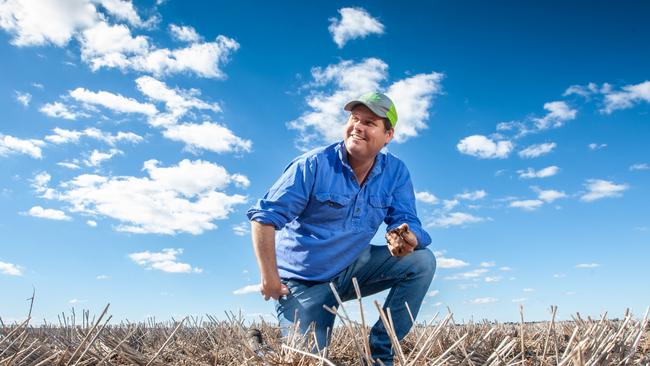
Nigel believes in the past three years especially, farmers are gaining a much better understanding of their own emissions, and that research and technological advancements will push farmers to embrace new practices.
“I’ve got a very strong belief that sustainable practices will make us much more productive, but also much more profitable,” he said.
“I’m very confident that agriculture has a very bright future in pushing towards carbon positive and carbon neutrality in 30 years’ time.”
BEA LITCHFIELD, 31
Bea Litchfield is the stud stock manager at Hazeldean Litchfield, which has been operating at Cooma in the NSW Monaro region since 1865.
Specialising in Angus beef and Merino wool, Bea looks after the data management and animal health of about 3500 stud ewes in the Merino flock, and 2800 females in the Angus herd.
A successful enterprise already, Bea is “not looking to reinvent the wheel” as her career progresses at Hazeldean.
“We’re looking to maintain our position in the Merino and Angus industry, so just keeping up-to-date with the latest technology and anything that is going to make our genetic process faster,” said Bea, the daughter of Jim Litchfield – the fifth generation James Litchfield to run Hazeldean – and wife Libby.
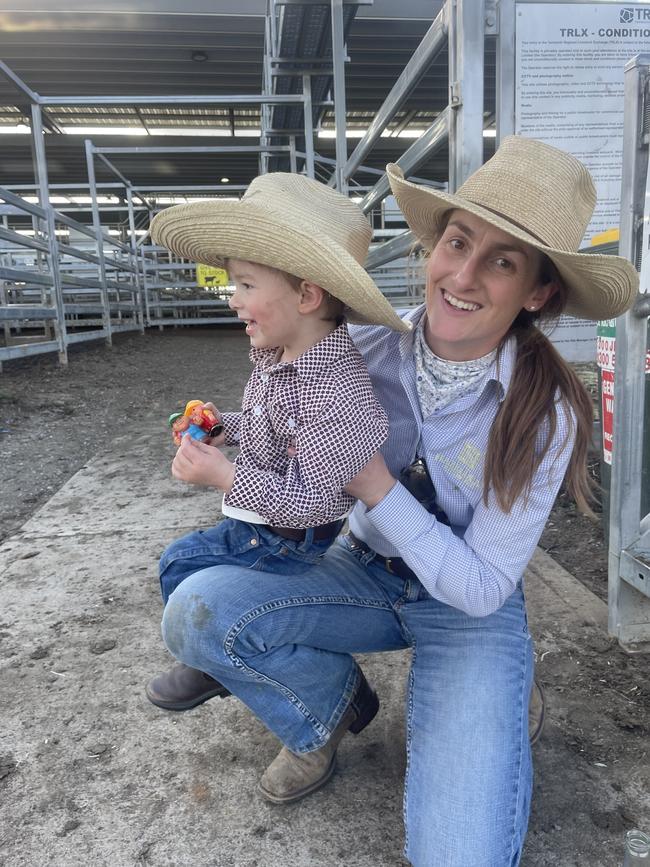
Noting that climate change will be a considerable challenge going forward, Bea said that sufficient human resources will also be a focus.
“We’ve put a lot of effort into training young people, but the labour market has been reducing quite significantly,” she said.
“We have a scholarship through Marcus Oldham where students come and do a year with us, and by the end of the year they’re showing a few more management and leadership qualities which is really good to see.
“That’s been really rewarding, we really enjoy doing that, and there’s a benefit to us because we start creating a network with these young people.”
SAM REID, 31
Growing up on a cropping and sheep farm near Deniliquin, NSW, Sam Reid’s journey to Te Mania Angus has not been a traditional one.
Having bought and sold grain, worked in logistics, and plied his trade in agribusiness asset management, Sam, whose father-in-law Hamish McFarlane is director at Te Mania, is now working to improve beef genetics as farm manager at Merrang.
“I’d basically had no cattle experience when I came across, but farming is all about managing risk, and given I’ve got a lot of experience in different systems, it’s helped me immensely to come back to this business,” Sam said.
“We’ve got hundreds of years’ worth of beef knowledge here already, so to be able to contribute in different ways because of my different career experiences is great.”
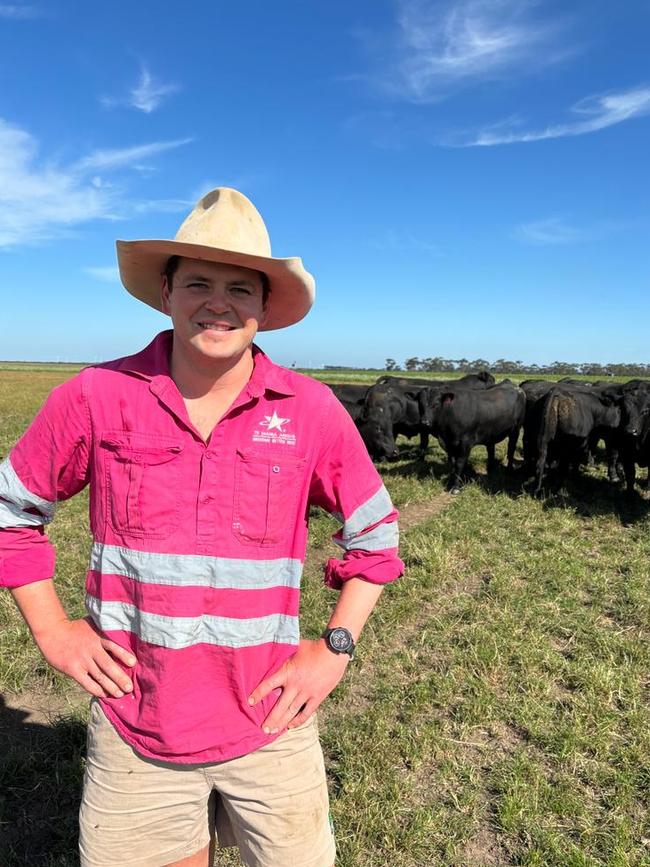
Sam is enjoying working in the improvement of genetics, and is excited for the new chapter of Te Mania with the new generation coming on board.
“As a business, Te Mania has always tried to stay ahead of the eight ball, and we just really have to continue our research and development and make sure we’re at the forefront of technology,” he said.
Sam will soon be moving over to a new expansion for the business north east of Colac with partner Caroline, with the land being used to expand the genetics business.
RUTH CORRIGAN, 35
Ruth Corrigan has farming in her blood, with her and her brother Anthony being the fifth generation of the family to work in the business.
Ruth Corrigan is the farm manager at Rennylea Angus, a family seedstock business based in the Murray Valley in southern NSW, selling about 600 bulls commercially and running about 2200 Angus females.
“I always wanted to go farming since I was little. I just loved working outside with livestock, being active and hands-on, and it’s the passion that I’ve enjoyed since I was a kid,” said Ruth, whose parents are Bryan and Lucinda Corrigan.
“I also loved analysing data and applying it to animal breeding and decision making, and was probably why I came home and joined the business.”
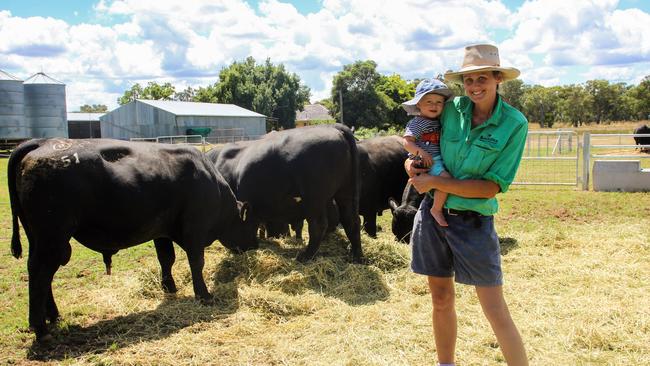
Those passions saw Ruth working in day-to-day management of the herd, but since having kids, has now shifted towards a focus on breeding and genetics and overall business strategy.
“I really enjoy some of the challenges of small business, and love developing good young people, teaching them good skills and watching them grow and invest in their capabilities,” she said.
“We’ve got a really great team of family and non-family members, and people management wasn’t something I probably loved earlier on in life, but I definitely love that side of it now.”
TOM LONGMIRE, 26
For Tom Longmire, a third generation-farmer cropping farmer growing wheat, barley, canola, field peas and lentils at Beaumont, 110km northeast of Esperance in Western Australia, the use of variable rate technology is transforming his family’s enterprise.
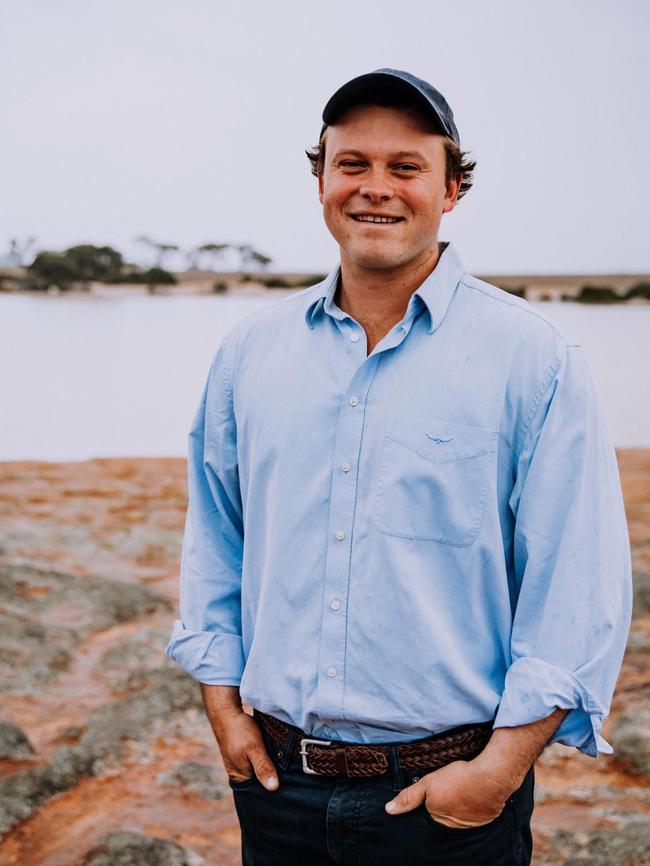
The technology allows Tom and the team to match changes in crop yield potential with specific input rates, maximising efficiency in their operations.
“After Dad did a Nuffield scholarship in 2004, we’ve been pushing the variable rate tech a bit, and since I’ve come into the business I’m been learning it and expanding it,” he said.
“In some ways it’s saving us money directly, but also helping us budget for fertiliser use, and maximising crop yield across the property.”
“There’s nothing worse than thinking you’re saving a dollar by dropping your fertiliser rate, and then missing out on half a tonne of grain at the end.”
With the precision technology being used on the farm for almost two decades, Tom said working with his family to implement it is one of the best parts of the gig.
“I really enjoy working with my parents and being a part of a business on the place where I grew up,” he said.
“Seeing the progression we’ve made since I was a kid up until now is very rewarding.”



